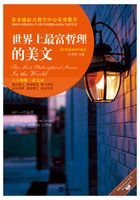
第4章 喜欢自己更多一点 (2)
Several years ago, I discovered a grape-sized lump on my left breast. My doctor scheduled outpatient surgery right away. A month later, when I resumed periodic self-examination, I felt the same lump in the same hard-to-reach place. I was certain of it! When I called the doctor to suggest he might have missed the lump in question, he insisted I was wrong. It could not possibly be a lump, he said, because he had removed it. After all, he was the doctor.
I got off the phone, doubting what I’d felt with my own hand. But fear of lethal consequences gave me the courage to insist he re-examine me, at which point he reluctantly acknowledged that, yes, it did seem to be the original lump. He removed it in a second surgery.
In my case, I had to confess that I was stupid because I didn’t understand technical things. Yet, even after acknowledging that I’m actually a pretty intelligent person, I still had to grieve the fact that no amount of classes or training would ever completely solve my technical ineptitude!
Another lie I believed about myself was that I’d been selfish for having only one child. The truth is, I nearly died giving birth to my daughter, and my husband didn’t want to adopt. Still, I spent years feeling like an inferior mother —like I should have trusted God to protect me in subsequent childbirth.
I now believe that —in my case — one child was God’s will for me. I’ve rejected the condemnation. Nevertheless, I had to grieve that I’d never have the houseful of children I’d always wanted.
最近,我问坐在我车里的一位朋友:“你喜欢自己什么?”沉默了好几分钟后,她转向我,满脸歉意地说:“我想不出来。”
我十分诧异,她竟看不到自己的任何优点。她是一个多么聪明、美丽迷人而又富有同情心的姑娘啊!
我深知并非只有她一人如此,自尊心较低已成为女性最大的困扰。尽管上帝保证深爱着我们,但我们大多数人不能相信他是说的“我们”。就像愤世嫉俗的编辑对初出茅庐的记者说:“如果你妈妈说她爱你,那就去确认一下吧。”
我已作了十二年的记者,在采访中我首先学到的是“错进,错出”。若你的初始资料有误,那么你的结论也不会正确。同理,我们看待自己也是如此。如果我们缺乏自信心,那也是正在操作有错误的数据资料。
事实上,通过许多种微妙的方式,我们的信心被文化、家庭、朋友甚至是精神生活共同削弱。我们成长的家庭缺乏肯定、鼓励和尊重,而这些正是建立自信的基石。于是,我们发现,自己所处的世界推崇好莱坞二流明星和芭比娃娃的形象。我们的薪水、头衔或者其他人为的标准让我们临时步入所谓的上流社会。但是,在内心深处,我们知道它并不真实,那通往真实的道路到底在哪里呢?
我有科技恐惧症,我的哥哥对此却极有天赋,能读懂操作手册、修理东西、使用电脑。当我为了找工作第一次学习电脑时,我就坚信自己毕生都学不会它。
我痛苦而又清醒地记得,在电脑初学者培训班里,老师让我们“按任意键”,我徒劳地寻找“任意”键。那堂课终于结束后,我敢确信,自己连开车回家的能力都没有了,明天打扮得体地去上班就更不可能了,尽管事实上我管理了一栋房子,一个家庭,拥有一份工作,是一个专业的职员。
为什么会觉得如此丢脸呢?因为,我与隔壁那个10岁的小女孩比较,她轻轻松松地在网上搜索期末成绩,而我煞费苦心只是想上网。我没有认为科技能力不是我的强项,而是得出自己很愚蠢这样的结论,这是不正确的。
我们怎样尊重别人,别人就会同样地尊重我们。这就是不自信会暗示别人不要相信我们的原因。
多年来,我努力学习优雅地接受恭维。如果有人夸赞我的头发,我会不予理会。我会说,我的发型让我的脸看起来更胖了,或者我的头发是灰色的。我真正想说的是,肯定会有不足之处,我不值得您称道。我不喜欢自己,也不相信您会真正喜欢。问题是,如果我们一味贬低自己,最终别人也会相信我们所说的是对的。
有时候,错误的信息不是问题,而是我们对自己或处境要有一个正确的判断。但是,别人一旦质疑,我们就屈从了。
几年前,我发现自己左胸上长了一个葡萄状的硬块。我的医生立刻安排了一次外科手术。一个月以后,当我继续做定期体检时,我感觉在那个地方又发现了相同的硬块,我确定有。当我打电话给医生,跟他讨论他可能没有切除掉硬块时,他坚持说我错了,不可能有一个硬块,他说,因为他已经切除了。毕竟,他是医生。
我挂掉电话,怀疑自己手的感觉。但是,对死亡的恐惧促使我鼓起勇气,坚持让他给我重新检查,他极不情愿地指着那个地方承认了,是的,它好像还是原来的那个硬块。他再次动外科手术切除了。
对我来说,我必须坦白承认,我很愚蠢,因为我不懂技术方面的东西。但是,承认这个事实后,我的确是一个相当聪明的人。只是令我悲伤的是,不论多少课程或者培训都不能完全解决我的技术缺陷。
另一个不正确的观点是,我自认为很自私,因为我只生了一个孩子。事实上,生我女儿时我差点丧命,而且,我的丈夫不想收养。许多年来我依然觉得自己是个不称职的母亲,就像我应该信仰上帝会在以后的分娩中保佑我一样。
对我而言,现在我相信,一个孩子正是上帝的旨意。我拒绝受到谴责。不过,我对于自己不能实现满屋子孩子的愿望,仍感到悲哀。
心灵小语
喜欢自己多一点,自信多一点,别人才会喜欢你,相信你!不管别人怎么看你,你都要相信,你是唯一的,你是一个有价值、值得爱的人,要以自己特有的姿态去赢得世人注视的目光。
Seize Your Time
According to the speech, match each of the following verbs with its
meaning.
(1) subtle a. having no qualities that would render it valuable or useful
(2) ineptitude b. faint and difficult to analyze
(3) humiliating c. of low or inferior quality
(4) capitulate d. surrender under agreed conditions
(5) inferior e. causing awareness of your shortcomings
Practicing for Better Learning
Do the following statements agree with the information in the reading
text?
Write
TRUE if the statement agrees with the information
FALSE if the statement contradicts the information
(1) The reality is, in hundreds of subtle ways, our culture, family, friends —even our thought life —conspire to improve our confidence
(2) We don’t have an accurate picture of ourselves or a situation, but we capitulate the first time someone challenges us.
(3) We grow up in families void of affirmation, encouragement, and respect — the building blocks to self-confidence. Then we find ourselves smart.